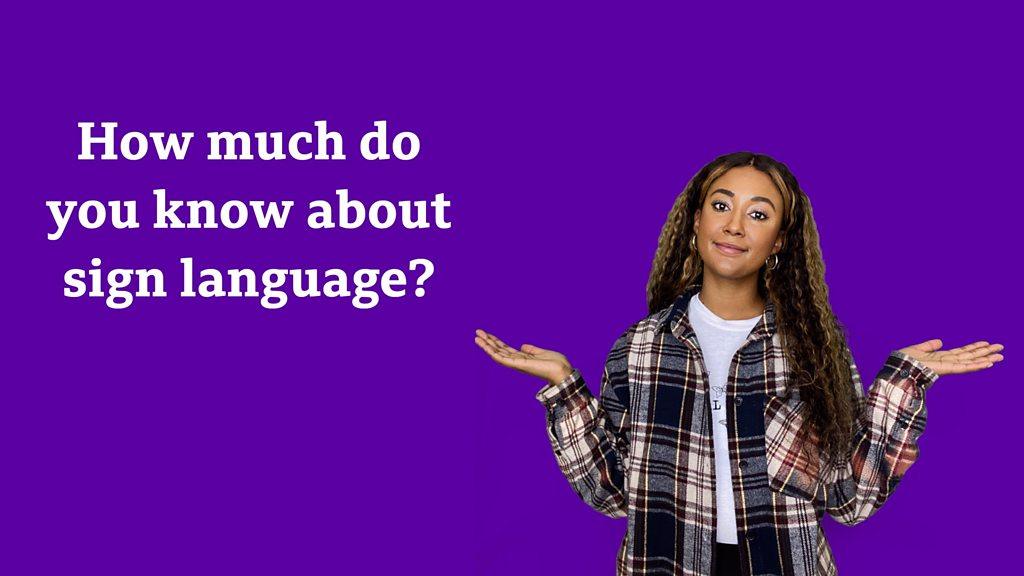Stormont ‘doing a disservice to deaf community in Northern Ireland'
- Published
"I can communicate with someone just like me."
The mother of a boy born without hearing in one ear has criticised delays to Northern Ireland's sign language bill.
The parties agreed two years ago to legally recognise British and Irish sign language through new legislation, external.
But the bill will not be able to be passed at Stormont without a functioning executive.
Gillian Douglas-Rea said politicians were "doing a disservice to the whole deaf community".
"This is about recognising their culture and identity," she said.
Ms Douglas-Rea's son, Jensen, was also born non-verbal, so she decided to take up sign language but initially found it difficult to access support and ended up paying to take classes online.
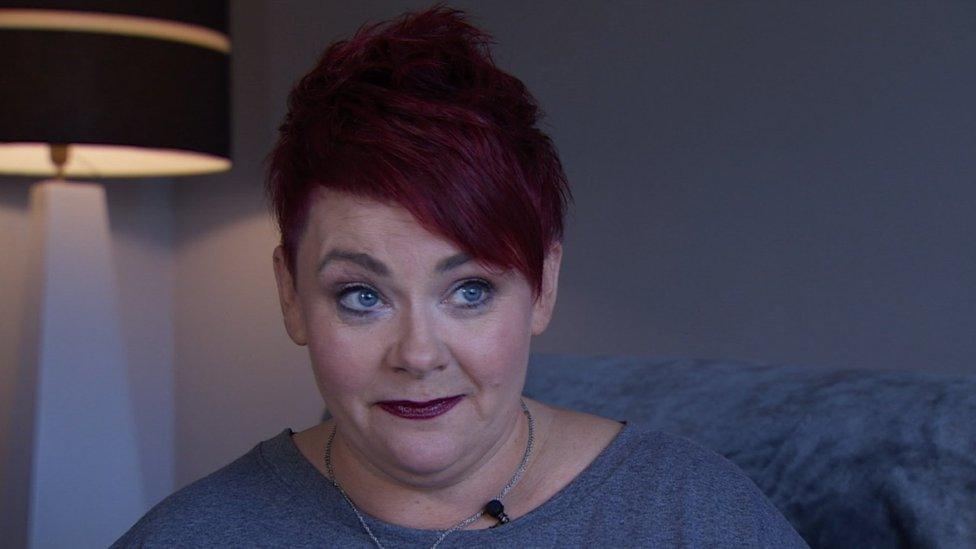
Gillian Douglas-Rea had to find resources herself in case her son Jensen's hearing deteriorated in the future
"We had to seek out charities and places and at the beginning of our journey, we didn't know what to do," she said.
She said she was glad she had persevered as it had given her son the "tools" he needed in case Jensen's hearing deteriorated in the future.
But she would like to see a sign language act in place as soon as possible.
"Our politicians need to get moving," she added.
Plans to introduce a sign language bill for Northern Ireland are facing a delay without a functioning Stormont executive, according to Communities Minister Deirdre Hargey.
The Sinn Féin minister said her officials had been developing the bill for some time, but executive approval would be needed.
Without it, Northern Ireland could become the only part of the UK without such laws.
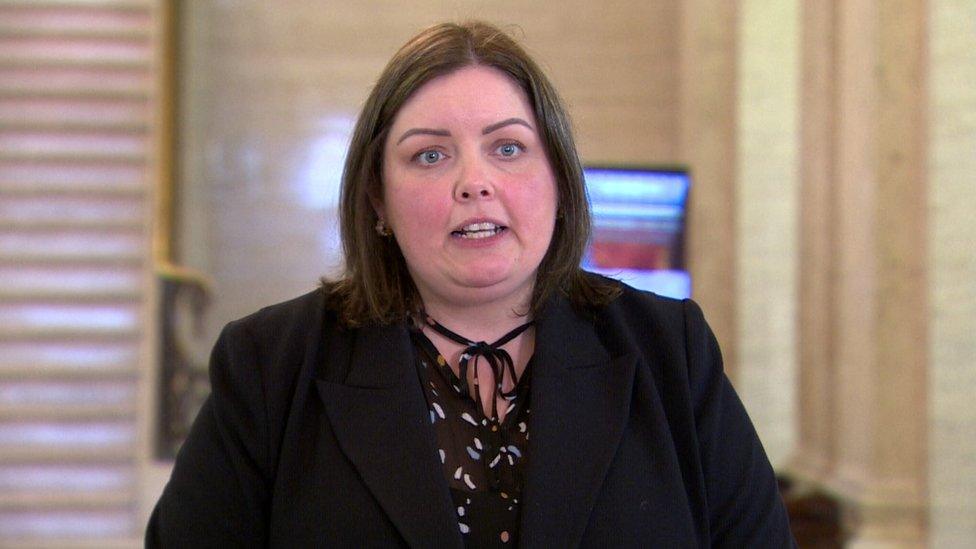
Deirdre Hargey says plans to introduce a sign language bill are facing a delay without a functioning executive
A sign language act would require the government to ensure the use of British and Irish sign language across public services.
It would also ensure a duty to promote sign language in educational settings and allow more people to learn it for free.
Scotland has had laws in place since 2015 recognising sign language, and the Republic of Ireland followed suit in 2017, external.
Later this week, Westminster will debate plans to change the laws in England and Wales, but it will not apply in Northern Ireland.
The New Decade New Approach, external deal said the parties were committed to bringing forward a bill for British and Irish sign language "at an early stage".
Asked why Ms Hargey had not already introduced the legislation, as it falls within her remit, she said she wanted to ensure it was as "comprehensive" as it could be.
"We're working with the deaf community to ensure it meets all their needs," she told BBC News NI.
"I could have rushed this through but, coming from those conversations, we needed to take the additional time.
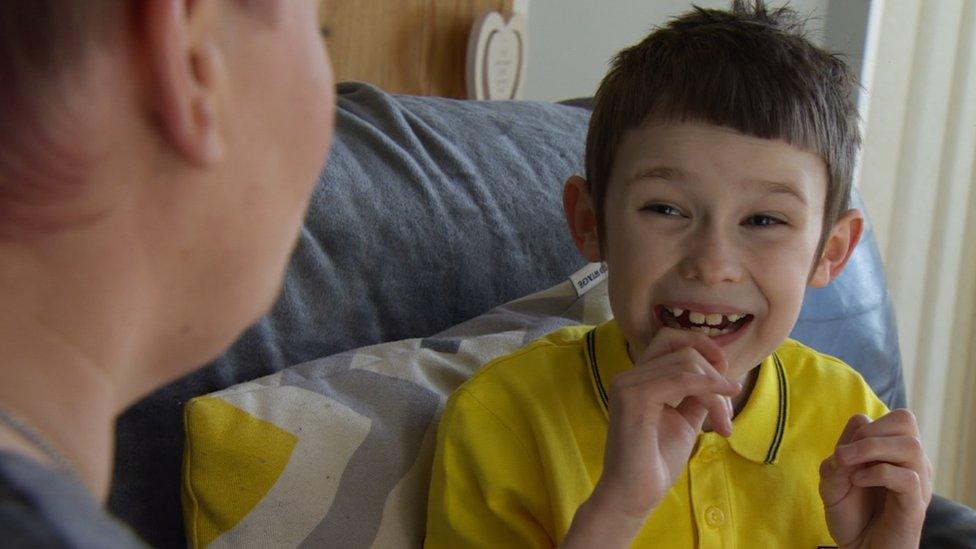
Jensen signing with his mum, Gillian Douglas-Rea
"All new legislation needs to go through the executive, the policy work is continuing to be done.
"Let's hope after the election, we get the executive up and running again so that the legislation can come through."
The British Deaf Association estimates that about 18,000 people in Northern Ireland use British or Irish sign language.
The Department for Communities said it had committed £1.2m to the British or Irish sign language community since the onset of the pandemic until the end of this financial year.
It is also working with members of the British Deaf Association to co-design proposals and develop the sign language bill.
- Published27 January 2022

- Published7 March 2022
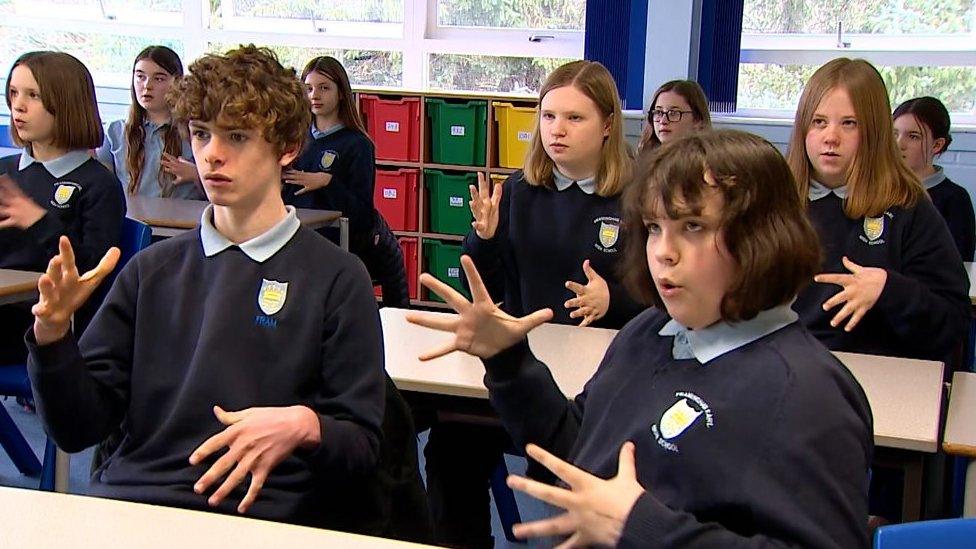
- Published23 September 2021
